Innovator Spotlight
Nelson SooHoo, MD
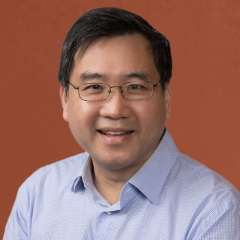
Associate Dean for Graduate Medical Education at the David Geffen School of Medicine at UCLA,
Professor-in-residence in the Department of Orthopaedic Surgery
UCLA Biodesign Program 2021-2022 Accelerator Fellow
Dr. Nelson SooHoo, is a 2019 UCLA Innovation Fund awardee and 2022 UCLA Biodesign Accelerator fellow. In 2019, he received an award from the UCLA Innovation Fund to develop a mechanized system to assist with the operative reduction and setting of long bone fractures. He is now working with Dr. Tyler Clites, also a UCLA Biodesign Accelerator fellow, to revolutionize the approach to arthritic joint treatment.
“The UCLA Innovation Fund and Biodesign Program truly deliver on the promise to partner with faculty in leveraging academic discoveries to benefit the world.
“The UCLA Innovation Fund provided the key support that allowed me to develop a surgical device to the stage where it was successfully licensed. That support was not only financial but even more importantly included experienced mentors and an ecosystem that empowered me to push through the challenges of product design, engineering, securing intellectual property, and developing a regulatory strategy. Dr. Matthew Savary and Dr. Thomas Lipkin were critical partners in every stage of development. Dr. Savary worked side by side with me and was tireless in his support. It was through his constant efforts that we both completed the prototype and identified the licensee.
“Dr. Jennifer McCaney’s mentorship was the other essential piece that helped guide me through the long process of developing this device. Her expert advice enabled me to apply for an NSF STTR Phase I grant that is in the final stages for approval. In addition, her strong commitment to nurturing the innovation ecosystem has helped identify the right people and resources at the critical times they were needed.”
Onike Williams, NP-C, MSN, APRN, PHN
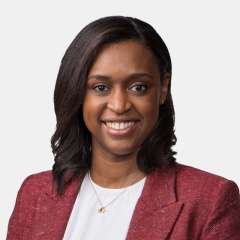
As UCLA Biodesign’s program development director, Onike Williams will help ensure the program’s involvement with a variety of disciplines and specialties, including the nursing community. A UCLA Biodesign Discovery fellow in 2020-2021, Williams is a nurse practitioner at UCLA Santa Monica Medical Center in the Cardiac Intermediate Care Unit and a winner of the 2021 UCLA Innovation Fund for work on a novel respiratory device.
Donald Kohn, MD
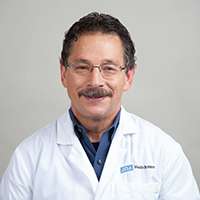
Distinguished Professor, Microbiology, Immunology and Molecular Genetics; Pediatrics (Hematology/Oncology); Molecular and Medical Pharmacology
Innovative Impact:
Dr. Kohn studies the biology of blood stem cells in the bone marrow. Over more than three decades, he worked to develop a treatment for adenosine deaminase-deficient severe combined immunodeficiency (ADA-SCID). Children with this so-called “bubble baby disease” are born with a defective gene that leaves them without a functioning immune system. Untreated, these children often die within the first few years of life.
Dr. Kohn’s gene therapy treatment collects a patient’s own blood stem cells, adds in the missing gene and infuses the cells back into the patient. He began the research at his previous institution but relocated to UCLA in 2009, drawn by the strength of the university’s stem cell research. The move paid off. In clinical trials, he has successfully cured more than 50 children of ADA-SCID. Now he and his collaborators have launched a company to further develop the treatment and are seeking FDA approval so that this lifesaving therapy can reach more ill children around the world. Recently, his team used a similar gene therapy technique to correct a genetic mutation that causes sickle cell disease, a life-threatening autoimmune syndrome.
In Their Words:
“Our goal was always to develop a therapy that would be available like any other medicine. Now there are 50-plus children walking around healthy because of [the ADA-SCID] treatment, and hopefully, it will be available for many more kids in the future.
“What attracted me to UCLA was how collaborative things are across the board, from basic scientists to physicians and physician-scientists in between. There are no barriers. UCLA very actively fosters innovation.”
Clara Lajonchere, PhD
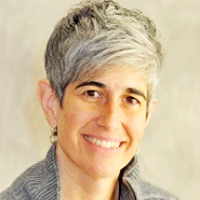
Deputy Director, UCLA Institute for Precision Health
Innovative Impact:
Dr. Lajonchere has a background in cognitive neuroscience. She has studied post-traumatic stress disorder in children, overseen the creation of a research database containing clinical and genetic information from families with autism, and created an autism treatment network of children’s hospitals and academic medical centers.
Since joining UCLA, she has helped create a new graduate training program for genetic counselors. She’s also involved in the launch of the UCLA AtLAs California Health Initiative, a program to collect biological samples from thousands of UCLA patients. That biobank of genetic data will enable researchers to develop new precision therapies that deliver the right treatment to the right patient, every time.
In Their Words:
“I’ve always wanted to make sure the work I do has an impact, but I know the slow pace at which academia often works. I took a leap of faith when I came to UCLA, and I saw immediately that the leadership was standing behind this precision health initiative. I see a very necessary cultural paradigm shift toward innovative technology, which will ultimately have a direct impact on health care. You can be a leader or you can be a follower; UCLA is choosing to lead in precision health.”
Daniel Low, PhD, DABMP
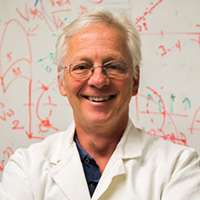
Vice Chair and Director of Medical Physics, UCLA Radiation Oncology
Innovative Impact:
An expert in medical physics, Dr. Low studies techniques to make radiation therapy safer and more precise. Much of his research focuses on modeling the motion of human breathing to develop new methods for delivering radiation therapy with precision.
Dr. Low helped UCLA become the third institution in the world to acquire the ViewRay™ image-guided radiation therapy system. The system combines magnetic resonance imaging (MRI) with radiation therapy. Using this technology, clinicians can fine-tune treatment in real time to deliver radiation precisely and minimize side effects.
In Their Words:
“Many institutions use a single type of radiation therapy machine. At UCLA Health, the radiology department decided to invest in a diverse set of machines. It’s about improving clinical care but also about investing in academic research and education. But innovation isn’t just about what you can buy. Our department and the hospital also provide resources and flexibility so that those of us who have the knowledge can invent new techniques that can lead to significant improvements in practice.”